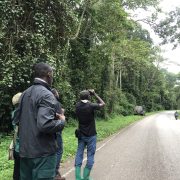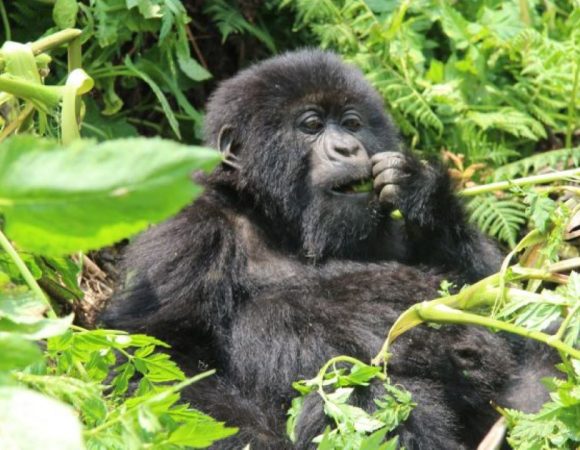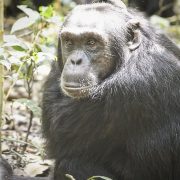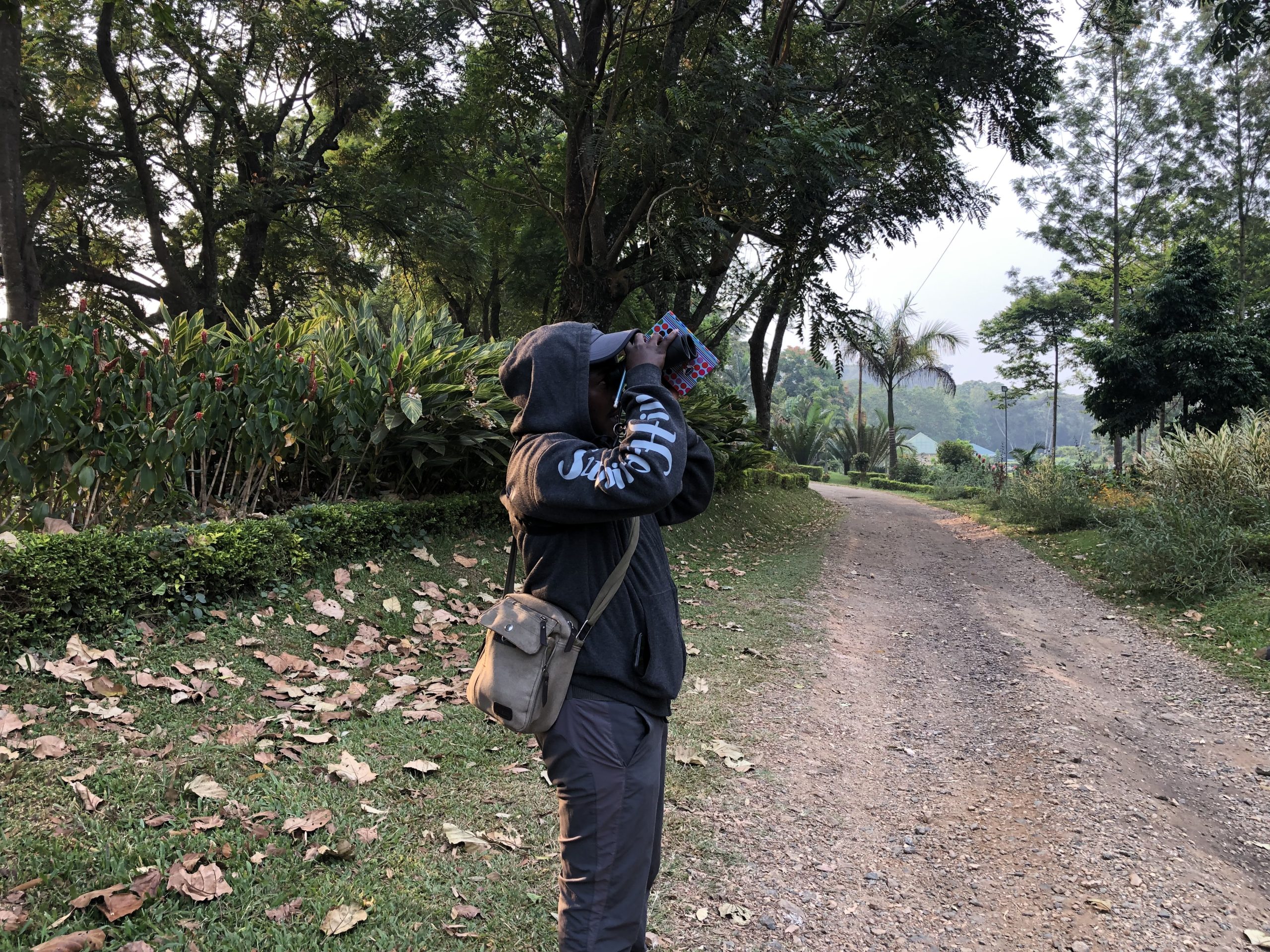
Bird Population Monitoring
Location – Tooro Botanical Gardens
Date: 20th January, 2025
On this day we were participating and contributing to a Bird Population Monitoring scheme that is run by Nature Uganda in partnership with other community and wildlife projects. Nature Uganda works closely with rangers from Uganda Wildlife Authority, bird guides, and local guides from the community, researchers and private sector companies. The scheme advances birding in Uganda and bird conservation.
We started our day at 7:30 am with brief introductions from Robert who works with Sunbird Hill located on the edge of Kibale Forest National Park. After brief introductions we started the Bird Population Monitoring, we were a team of 4 (Ritah, Robert, Fauzia and a staff member from Tooro Botanical Gardens). Bird Population Monitoring is important in the conservation of birds and wildlife management and the activity involves tracking the number of birds in an area. The scheme is an international program that focuses on common bird species with the main goal of monitoring trends in the population of bird species that are thought to be common in certain areas. The scheme has been running in Uganda since 2009 and Uganda is one of the pioneer countries for the Bird Population Monitoring Scheme.
We started counting at the main gate of Tooro Botanical Gardens located in Fort Portal, Uganda. The method that we were using on this day was the line transect method where we counted birds along a line transect so every 200 meters we would stop and start another track. With this activity the main goal is to count so we were not making long stops to spend time watching birds as the goal of the activity was counting and not birding. Our other birding excursions we usually spend time watching the birds and looking out for them but on this day our goal was different.
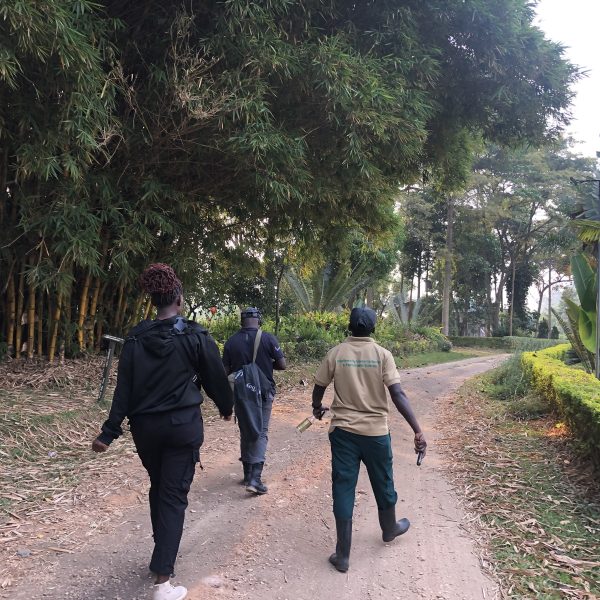
Bird Population Monitoring at Tooro Botanical Gardens
We used the main trail starting at the main gate and ending the monitoring near Fort Portal Municipality offices. Tooro Botanical Gardens is a great stop for birders while on safari in Uganda as over 237 bird species have been recorded at the site. The botanical gardens have indigenous plants, trees, flowers, medicinal plants and herbs. The botanical gardens provide a habitat for birds and have the largest indigenous tree nursery in Uganda. Tooro Botanical Gardens is a community initiative that was formed with the main aim of advancing ecological restoration, conservation and research.

Tooro Botanical Gardens
The bird species that we counted on this day included;
Red-eyed Dove
Tabourine Dove
African Green-Pigeon
Ross’s Turaco
Klaas’s Cuckoo
Marabou Stork
Reed Cormorant
African Sacred Ibis
Hadada Ibis
Purple Heron
African Goshawk
Speckled Mousebird
White-throated Bee-eater
Jameson’s Wattle-eye
Black-and-white Shrike-flycatcher
Northern Puffback
Brown-crowned Tchagra
Luhder’s Bushrike
African Paradise-Flycatcher
Gray-backed Fiscal
Mackinnon’s Shrike
Northern Fiscal
Pied Crow
African Blue Flycatcher
Green Crombec
White-chinned Prinia
Gray-capped Warbler
Singing Cisticola
Chubb’s Cisticola
White-headed Sawwing
Angola Swallow
Honeyguide Greenbul
Toro Olive-Greenbul
Common Bulbul
Green White-eye
Purple-headed Starling
African Thrush
African Dusky Flycatcher
Northern Black-Flycatcher
White-eyed Slaty-Flycatcher
White-browed Robin-Chat
Collared Sunbird
Blue-throated Brown Sunbird
Bronze Sunbird
Olive-bellied Sunbird
Copper Sunbird
Baglafecht Weaver
Northern Brown-throated Weaver
Vieillot’s Black Weaver
Village Weaver
Grosbeak Weaver
Black-and-white Mannikin
Black-crowned Waxbill
Red-billed Firefinch
Northern Gray-headed Sparrow
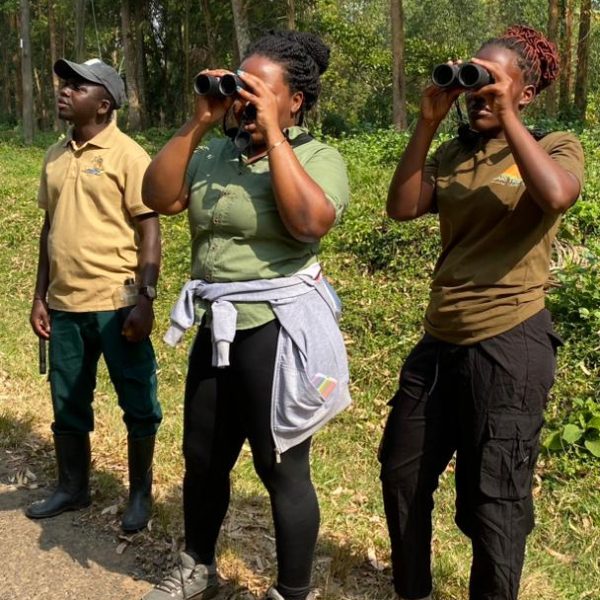
Bird Population Monitoring
The data that we collected during this Bird Population Monitoring exercise is fed into the International Common Birds Monitoring Database and this data can be used by schemes like the Global Wild Birds Indicator and African Wild Birds Indicator to inform conservation actions both regionally and globally. This scheme is helpful as it monitors common species that can sometimes be put to the back end as the focus is usually on globally threatened species. The scheme helps to provide information on birds in an area, changing Eco-systems and also creates awareness on the conservation of birds.
Bird Population Monitoring contributes greatly to the protection of birds and wildlife management. It was an honor for us to contribute to the exercise and conservation of birds!

At the reception centre after completing Bird Population Monitoring


